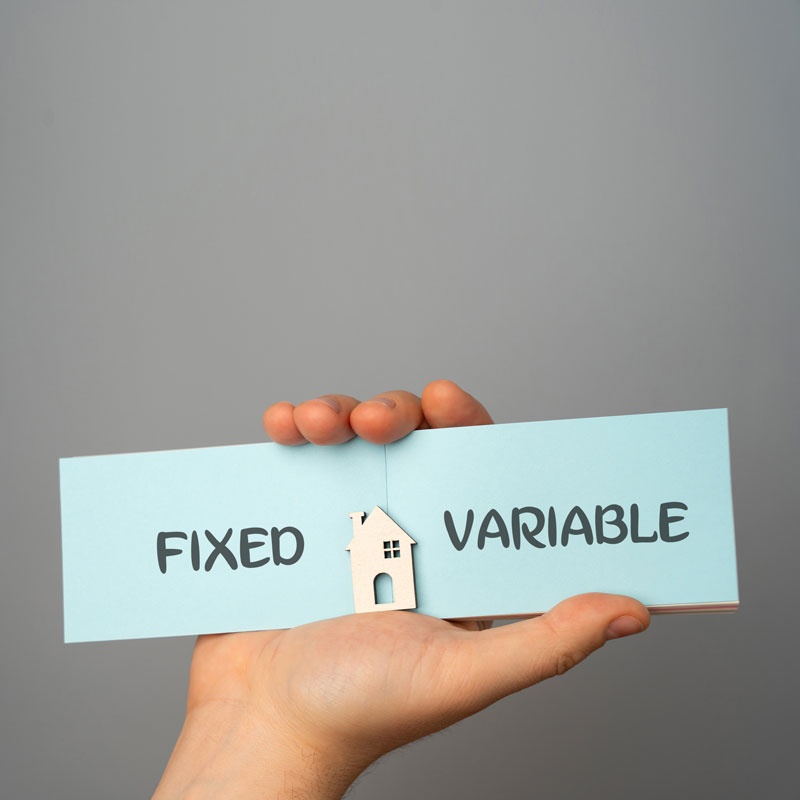Thinking about accessing your home equity to enhance your retirement security? It’s a smart move many homeowners over 62 are exploring.
One of the crucial decisions you’ll face is choosing between a fixed-rate and a variable-rate loan. Understanding the nuances of each can save you significant money and ensure the loan aligns with your long-term financial goals.
Let’s dive into the key differences.
The Stability of a Fixed Rate Reverse Mortgage
Imagine the peace of mind knowing your interest rate will remain the same for the entire life of your loan. That’s the core benefit of a fixed-rate loan. Just like a traditional fixed-rate mortgage when most people purchase their home, the interest rate is locked in at closing and will never fluctuate, regardless of market changes.
Some of the benefits of a Fixed Rate Loan are:
- Predictable Costs: This predictability allows you to better forecast your homes equity going forward. You’ll have a clear and unchanging understanding of your accruing interest over time.
- Protection against Rising Interest Rates: Since the interest rate is set in stone (so to speak), one is protected from sudden spikes and economic volatility.
Some of the Disadvantages
- Lower Initial Loan Amount: Typically, fixed-rate reverse mortgages offer a lower amount of money to the borrower when compared to their adustable-rate counterparts.
- Limited Features: A Fixed Rate Reverse Mortgage ONLY provides a one time lump sum payment (whereas a fixed rate offers a line of credit, monthly payments for a fixed period (term), or for life (tenure).
A Fixed Rate Loan is Best For: Homeowners when we have uncommonly low interest rates or when interest rates are predicted to rise and the borrower may not need the maximum available funds.
The Flexibility of a Variable Rate Reverse Mortgage
Most loans funded are variable-rate loans tied to the Market Yield on U.S. Treasury Securities at a 10-Year Constant Maturity (Federal Reserve DGS10 Index), a common interest rate index, and have limited increase of 2% annually and 5% over the life of the loan, but have no limits on how low they can fall.
This means your interest rate, and therefore the amount of interest accruing on your loan, can go up or down.
Some of the benefits of an Adjustable Rate Loan are:
- Often Funds More Initially: Variable-rate reverse mortgages often allow you to access a larger principal loan amount at the outset compared to fixed-rate options.
- Provides the Flexiblity of Funding: With an this style of loan, you can keep your funds in a growing line of credit (with no interest on the fund you have not received), or receive term or tenure monthly payments.
- Potential for Lower Rates: When interest rates are expected to decline or remain low, a variable-rate mortgage can be advantageous. You could potentially benefit from lower overall interest costs over the life of the loan.
- Best For: Homeowners comfortable with market fluctuations and who might need a larger initial disbursement of funds. If you believe interest rates will fall or stay low, this option could potentially save you money.
An Adjustable Rate Loan is Best For: Homeowners comfortable with market fluctuations and who might need a larger initial disbursement of funds or for those who only want a smaller portion of money initially and want to keep the rest in a line of credit to use at a future time.
Key Differences Summarized
| Feature | Fixed-Rate Reverse Mortgage | Variable-Rate Reverse Mortgage |
| Interest Rate | Remains constant for the life of the loan | Adjusts based on market interest rates |
| Initial Loan Amount | Typically lower | Often higher |
| Best For | Prioritizing stability, predictable costs | Seeking potentially lower rates, larger initial funds |
Understanding these differences is just the first step. To truly determine which type of loan best aligns with your individual needs and financial goals, expert guidance is invaluable. The licensed loan agents at Reverse Mortgage Solutions of California are here to provide you with all the detailed information you need. They can walk you through the intricacies of both fixed-rate and variable-rate options, explain how current market conditions might influence your decision, and answer all your questions with clarity and expertise.


0 Comments